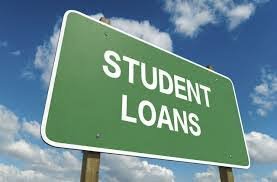
Getting a college education is one of the most important investments you can make in your future.
However, with tuition fees on the rise, paying for school out of pocket can seem impossible for many students. Thankfully, student loans introduced by President Bola Ahmed Tinybi provide an option to help cover education costs.
In this comprehensive guide, we’ll explain everything you need to know about student loans in Nigeria, including requirements, how to apply, repayment details, and more.
What is a Student Loan?
A student loan is a type of loan designed to help students and parents pay for educational expenses such as tuition, books, supplies, living expenses, and other related costs. Student loans are financed by the government or private lenders and typically have favorable interest rates and flexible repayment terms.
Here is the expanded 1000 word article on Student Loans in Nigeria with headings and subheadings as requested:
Types of Students Loans
There are two main types of student loans offered in Nigeria
Federal Student Loan
Managed by the federal ministry of education, this loan caters to undergraduate studies. Students can borrow up to N150,000 – 1,000,000 Naira per academic year for a maximum period of 4-5 years based on their program of study. The funds can be used to pay tuition fees and approved living expenses.
Requirements and Eligibility Criteria
To be considered for a student loan, certain basic conditions must be fulfilled:
Nigerian Citizenship
Applicants must possess a valid Nigerian passport or national ID card to prove citizenship.
Admission to an Accredited Program
They need to have secured admission into a full-time, on-campus undergraduate/postgraduate program offered by an accredited Nigerian university or college.
Minimum Academic Qualification
For undergraduate loans, applicants are required to have obtained a minimum of SSCE or NECO qualification with passes in five relevant subjects including English and Mathematics.
Good Academic Performance
They should have maintained at least a Second Class Lower Division or 2.40/5.00 CGPA in their previous degree to demonstrate strong academic standing.
No Loan Default History
Applicants who have defaulted on repaying an earlier education loan will not be eligible for a new one until all arrears plus penalties are cleared.
Provision of Two Guarantors
All students must furnish contact details of two reliable co-signers/guarantors, preferably public servants, to underwrite the repayment undertaking.
How can I apply for the Federal government Student loan in Nigeria?
The standard procedure to apply for a student loan involves the following steps:
Obtain Application Form
Form can be downloaded online from the websites of the ministry of education or HELB, or collected physically from their state offices.
Fill Out Form and Attach Documents
This includes personal details, bank account no., guarantors’ info, admission letter/proof, passport photograph, signature etc.
Submit to Nearest Loan Board Office
Completed applications must be delivered in person before the deadline along with photocopies of all documents.
Application Screening and Shortlisting
Eligibility of applied are assessed based on criteria. Shortlisted candidates may need to appear for further evaluation process.
Receive Approval/Rejection Letter
Successful applicants receive approval intimation by mail while unsuccessful ones are informed about reasons for denial.
Loan Disbursement
Qualified recipients get disbursed in installments into their nominated bank account.
Loan Terms and Repayment Process
It is critical for borrowers to comprehend obligations to avoid defaults or penalties:
Moratorium Period
A grace period of 6 months post-graduation is available before repayment starts to facilitate job search.
Loan Duration
Federal loan repayment tenure is 5 years maximum whereas HELB loans may require 7-10 years depending on amount sanctioned.
Interest Rate
A nominal subsidized rate of 9% for federal and 12% for HELB loans is charged annually on outstanding balance.
Monthly Installments
Installments covering principal and interest are deducted directly from the linked bank account on pre-defined dates.
Late Payment Charges
Missing due date incurs penalties, the rate varies from 1-2% per month on overdue amounts.
Consequences of Default
It severely impacts credit rating, additional legal fees are applicable, and cases may end up in court.
Conclusion
In conclusion, the student loan program has undoubtedly empowered many fellow citizens to access higher education who may have struggled otherwise due to financial restraints.
While stringent conditions apply for eligibility and timely repayments, the opportunity to borrow funds interest-free during studies provides a critical lifeline.
With prudent usage of disbursements solely towards intended education goals and responsible loan management post-graduation, the scheme can deliver tremendous long-term benefits towards an individual’s career and prosperity. Students are encouraged to make the most of this valuable resource.
Frequently Asked Questions (FAQs)
Can student loans be repaid?
Yes, student loans can be repaid. Federal student loans offer various repayment plans, including income-driven repayment plans that can lower monthly payments to as low as 10,000 naira per month
Which repayment plan will you be placed on automatically?
Borrowers with federal student loans will be automatically enrolled in an income-driven repayment (IDR) plan if they are at least 75 days late on other repayment plans. They will be enrolled in the plan that offers the lowest payment based on their eligibility.
The newest federal income-driven repayment plan, Saving on A Valuable Education (SAVE), launched in August 2023, ahead of student loan bills resuming in October. It replaced the previous IDR plan known as REPAYE.
Under the SAVE plan, monthly payments are based on the borrower’s income, not the student loan balance. The plan can reduce monthly payments to zero for some borrowers and prevent balances from growing due to unpaid interest